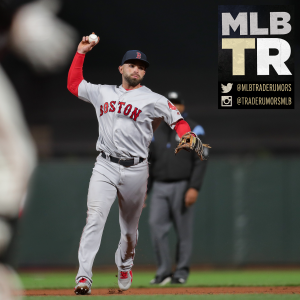The luxury tax bills for the Red Sox, Cubs and Yankees – the three teams that exceeded the $206MM threshold in 2019 – are now public knowledge. The Red Sox owe $13.4MM, the Cubs will pay $7.6MM and the Yankees must surrender $6.7MM, according to Ronald Blum of The Associated Press. As far as actual payrolls go, Boston checked in at $228MM, the Yankees put a $226MM roster on the field and the Cubs spent $220MM, Blum notes.
Neither the Red Sox nor the Cubs made the playoffs in 2019 despite their elite-level spending, while the Yankees lost to the Astros in the ALCS. Now, with the exception of the Yankees (who’ve already made history this offseason with the nine-year, $324MM contract they awarded right-hander Gerrit Cole), those clubs look as if they’re in salary-cutting mode. The tax limit will climb to $208MM next season, and the Yankees will blow past it in the wake of the Cole signing. Moreover, there’s a decent chance the Yankees will outspend the $208MM mark by $40MM or more, which would lead to a 42.5 percent overage tax next year and would cause their highest draft pick to drop 10 spots.
It seems the Red Sox and Cubs would like to avoid the tax, but it remains to be seen whether either will pull off that feat. As things stand, next year’s Red Sox are projected to go beyond $208MM by almost $30MM, while the Cubs will do so by about $6MM, per Jason Martinez of Roster Resource.
It will be easier for Boston and Chicago to duck the tax 12 months from now if they sell off an expensive star or two, which seems possible. The clubs have former MVPs (outfielder Mookie Betts for the Red Sox and third baseman/outfielder Kris Bryant for the Cubs) who have come up in trade rumors. Betts and Bryant aside, there are other well-compensated potential trade chips in both cases. Left-hander David Price and center fielder Jackie Bradley Jr. come to the fore for the Red Sox, while righty Yu Darvish and first baseman Anthony Rizzo join Bryant among high-priced Cubs who may not be untouchable.

